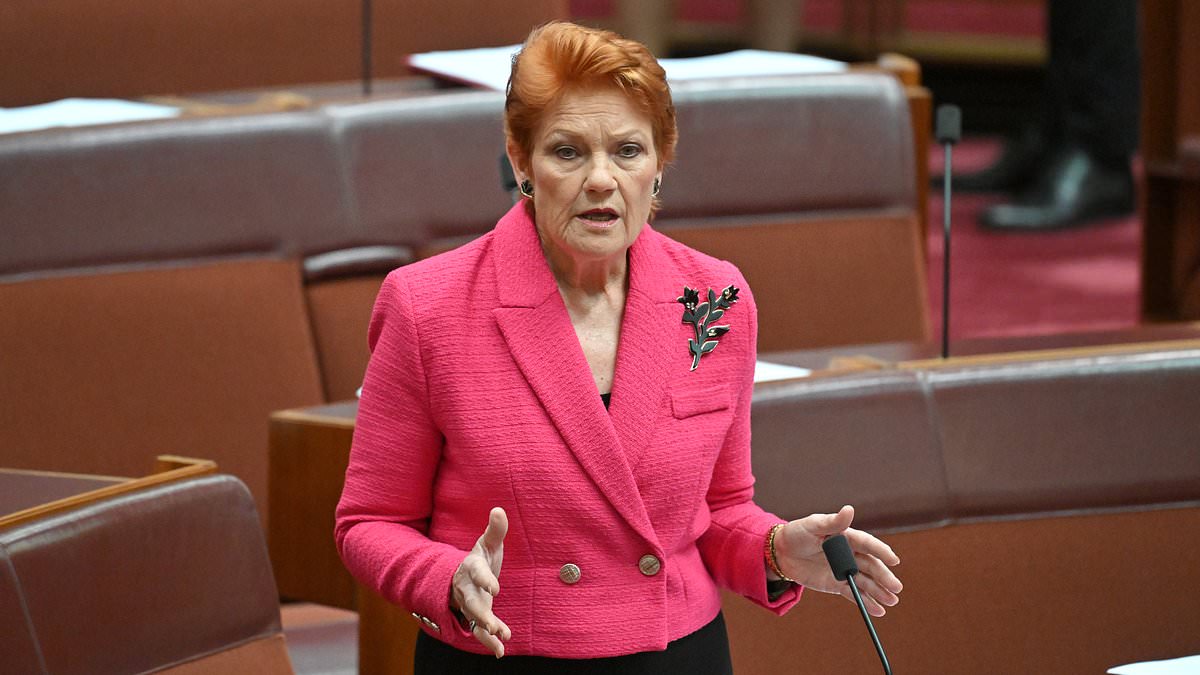Pauline Hanson has slammed the Albanese government for further increasing international student numbers, claiming many are working cash-in-hand, dodging tax, and taking jobs from everyday ns.
Labor will raise the 2026 cap to 295,000 international student places, 25,000 more than flagged for 2025, despite promises to reduce migration numbers, and amid repeated warnings the system is being abused.
Critics, including Hanson and former Treasury economist Leith Van Onselen, say the student visa scheme is no longer about education, but about cheap labour for businesses that pay them ‘under the counter’, and as a step toward permanent migration.
They also warn that huge number of arrivals also compete with ns for rental properties, pushing prices in major cities to extraordinary levels.
The Albanese government brushed off such criticism and said it would work with universities to boost the availability of student accommodation.
‘International education is an incredibly important export industry for , but we need to manage its growth so it’s sustainable,’ Education Minister Jason Clare said.
But Hanson says the student visa system is a racket.
‘Many of these people are taking jobs that should be held by ns – often for under-the-table cash, which is then sent home.
‘The Institute of Public Affairs showed that foreign students earned $15.4 billion in through part-time work in 2023, with more than $10.5 billion of it being sent back overseas.
‘This puts a huge dent in the claim this “industry” is worth almost $50 billion a year to the national economy – it isn’t.’
Hanson said any foreign student found to be working but not paying tax should have their visa cancelled, ‘and should be thrown on the next flight back to their home’.
She said n universities are classified as not-for-profit institutions.
‘This status enables them to avoid paying tax on the upfront fees foreign students pay them, and to which they have become addicted like meth junkies.
‘n taxpayers are being ripped off by the ‘international student’ racket.’
In the year to May, 794,113 international students were enrolled in education across the country, with education now ‘s biggest services export and the fourth-biggest export after iron ore, coal, and natural gas.
While China still leads in international student numbers at 167,147, India and Nepal have seen significant increases, moving into second and third spots with 123,456 and 57,048 students, respectively.
Leith Van Onselen, a former Treasury economist, highlighted a survey by Allianz Partners that found 68.4 per cent of international students plan to stay in long-term.
‘Students from South Asia and Africa choose a study destination based on their capacity to gain job rights, a low-cost course, and permanent residency,’ Mr Van Onselen said.
‘With the exception of students from China and Europe, all source nations placed a high value on the potential to work while studying and post-study employment opportunities.
‘It should be no surprise, then, that has witnessed the greatest increase in student numbers from nations that rely on paid employment.
‘Indian students and migration agents celebrated Labor’s federal election victory because they know that it means easier entry into .
”s policymakers and media should drop the charade and acknowledge that international education is an immigration racket.’
A new Reserve Bank report found that the soaring number of international students was putting pressure on the housing market during a time of high construction costs.
‘The number of international students onshore is still near record highs, and student visa arrivals have exceeded departures in recent months, suggesting the number of students onshore is growing,’ it said.
‘In the face of a relatively fixed supply of housing in the short term, we would expect an increase in international students to put upward pressure on rental demand and rents (all else equal).
‘Capacity constraints, high costs in the construction sector, and low levels of building approvals relative to the population may mean the housing supply response could be slower to materialise compared with in the past.’
